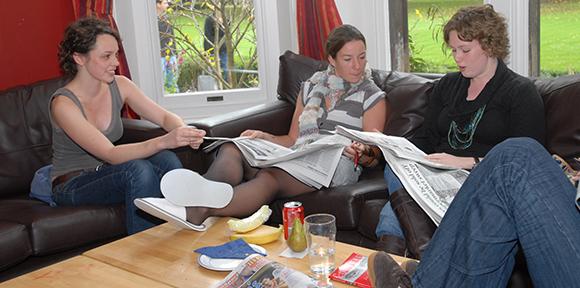
House hunters are being warned of bogus advertisements for rental accommodation, after a University researcher almost fell for an online scam.
Dr Sophie Van Der Zee moved to Cambridge in 2013 as a postdoc in the Computer Laboratory’s Security Group, where her research involves online deception.
“I found a beautiful and affordable place to live on Craigslist,” she said. “Although the flat seemed a little too good to be true, I contacted the landlord. Only when he asked for my deposit via Western Union, I knew for sure I was dealing with a scammer.”
Van Der Zee decided to treat the experience as a research opportunity and, with Dr Richard Clayton and Professor Ross Anderson, examined how such scams operate, whether people fall for them, and how scammers dupe flat hunters into transferring money.
Their results – now submitted to an academic journal – suggest the best defence is to cut and paste parts of the advert into a search engine. “If your perfect Cambridge apartment is also advertised in Brighton and even New York, you’re likely to be dealing with a scam,” she warned.
The University’s Accommodation Service confirmed that several University members and visitors have lost considerable sums of money in these scams. “Scam websites often feature real properties, but the people advertising the accommodation do not own them. Before viewing, prospective tenants are asked to pay an upfront fee, which is supposedly refundable, but never is,” said Nicky Blanning, Head of the Accommodation Service.
“Our advice is never to send money upfront to a potential landlord – unless the property is from our website – and if in doubt, contact us.”
For more information, visit www.accommodation.cam.ac.uk or contact accommodation.service@admin.cam.ac.uk.
